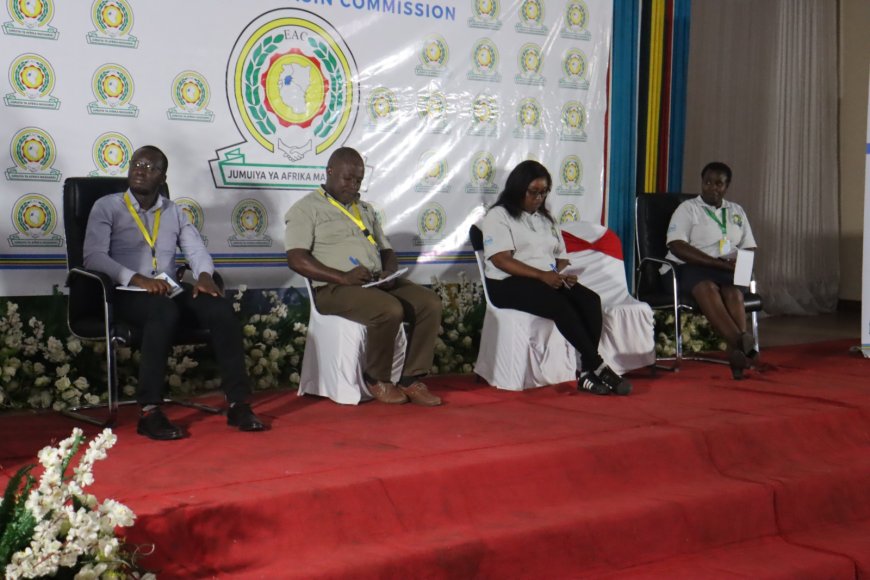Experts vouch for water fund model to conserve Mara River

Kisumu
Sunday, September 17, 2023
KNA by Chris Mahandara
Experts have called for the establishment of a water fund to help conserve the Mara river basin ecosystem.
Participants at the 12th Mara Day Scientific Conference held at Mugumu town in Tanzania observed that the model would put in place a watershed investment program to optimally support conservation of the transboundary River.
This comes amidst concerns over dwindling funds for conservation efforts even as experts warn that the river ecosystem was facing environmental degradation.
A water fund is a long-term financial mechanism that allows stakeholders to join efforts for common purpose, mostly source water protection. It leverages private funding, biodiversity conservation related funding and climate mitigation and adaptation financing.
Masinde Muliro University of Science and Technology (MMUST) lecturer Dr. Stela Wanjala while breaking down the concept said private sector funding was key in conservation efforts of the Mara river and other transboundary water bodies in the region since governments were cash strapped.
Dr. Wanjala who is piloting a water fund for river Yala with women groups within the catchment said besides conserving the water body, the initiative would also empower women, youths and other marginalized groups.
The Mara river and other water bodies, she said, were under pressure due to pollution and increased human activity which called for adequate funding to roll out programmes to restore the ecosystem.
“What it basically entails is financing education of farmers and the community upstream on sustainable farming practices. This will not only improve their livelihoods but also improve the quality of water downstream,” she said.
Through stakeholder meetings, she said, nature based solutions are developed to not only address pollution, but to also offer alternative sources of livelihood for the communities to abandon practices that degrade the environment.
“To achieve this, members of the community living in the river catchment area will receive incentives to abandon activities that compromise the quality and quantity of water,” said the university lecturer.
“We will target water companies for example to give us money and in the long run they will spend less when purifying water for distribution because it shall not be polluted,” she added.
Alternative livelihoods like apiculture and agroforestry, s added Dr. Wanjala, have been identified as alternatives to charcoal burning and unregulated agricultural practices which threaten the ecosystem.
The annual scientific conference brought together scientists, experts, high ranking government officials and delegations from Kenya, Uganda and Tanzania to take stock of conservation of the Mara River.
Besides the water fund, the delegates resolved to intensify and diversify resource mobilization initiatives for a broad-based multi-sectoral and multi-stakeholder transboundary programme to catalyze sustainable management and development of the Masai Mara-Serengeti ecosystem.
Kenya and Tanzania which signed a memorandum of Understanding (MOU) in 2012 to jointly manage and conserve the Mara river ecosystem were also tasked to make budgetary provisions and prioritize interventions in the Mara-Serengeti Ecosystem in their respective budgets.
The conference also resolved to reach out and leverage on private sector financing and investments for sustainable development of Mara River Basin (MRB) and in the Lake Victoria Basin (LVB) in general.
Other resolutions include promotion and investment in climate-smart agriculture, identification and mapping of major point source pollution hotspots, integration of indigenous community knowledge on conservation and support of the implementation of Mara River Transboundary Water Allocation Plan, including both upstream and down-stream parts of the basin.
The delegates further resolved to seek partnership for application of artificial intelligence to support knowledge generation and ecosystem monitoring and at the same time strengthen the institutional framework for cooperative management of the river ecosystem.
Lake Victoria Basin Commission (LVBC) Executive Secretary Dr. Masinde Bwire said a lot has been achieved since the signing on the MOU in 2012.
Dr. Bwire said the Mara-Serengeti ecosystem hosts two world famous wildlife habitats and tourist’s attractions in Kenya and Tanzania calling for concerted efforts to conserve the unique biodiversity.
“Preserving this rich natural heritage is therefore not only an ethical responsibility but also a strategic imperative for our economies,” he said.
The conference recommendations, he added, will serve as a roadmap of actions towards reinvigorating the sustainable development agenda and ecological integrity of the ecosystem.
Courtesy; KNA
What's Your Reaction?



































































































































































































































































































